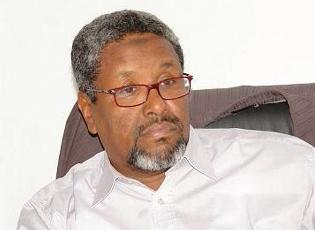Corruption suspects in Khartoum governor’s office released after returning money
April 26, 2014 (KHARTOUM) – A commission of inquiry set up by the Sudanese ministry of justice to probe corruption allegations against two staff members in the office of the Khartoum governor announced that they had managed to recover 17 billion pounds from the suspects.

Commission chairman Khalid Anas said at a press conference that the pair had been released after agreeing to return all money and property they gained unlawfully to the public treasury.
Anas revealed that some of the properties were registered in other people’s names in order to conceal any links to the suspects.
He further disclosed that there are seven other non-employees who were investigated for involvement and nine others as witnesses.
Deputy chairman Yasser Ahmed noted that the unlawful enrichment act allows the accused to return the money in order to avoid prosecution.
He disclosed the two employees used the money to buy new land and enter the automotive business.
Al-Khidir’s office said in a statement this week that the government at federal and state level had approved of measures he undertook to probe the incident and his decision to submit all relevant documents to judicial bodies for prosecution.
The governor was also questioned by the commission in the course of the probe, which also looked into whether employees embezzled money.
The uncovering of a corruption scandal of this magnitude has shocked observers and ordinary citizens alike and reinforced perceptions that the country faces a serious graft issue which the government refuses to recognise.
Early in 2012, Sudanese president Omer Hassan al-Bashir ordered the establishment of an anti-corruption commission to “monitor and follow what is being published in the media about corruption and to coordinate with the presidency of the Republic and other competent authorities in the ministry of justice and the national assembly in order to complete information on what is being raised about corruption at the state level”.
But after more than a year of seemingly zero activity, Bashir sacked the commission head and did not appoint a replacement, dealing a major blow to demands by the public for more robust investigations of corruption.
A major economic government-sponsored forum held in Khartoum late last year called for the establishment of an anti-graft commission as one means of resolving the ongoing financial crisis facing the country.
(ST)
